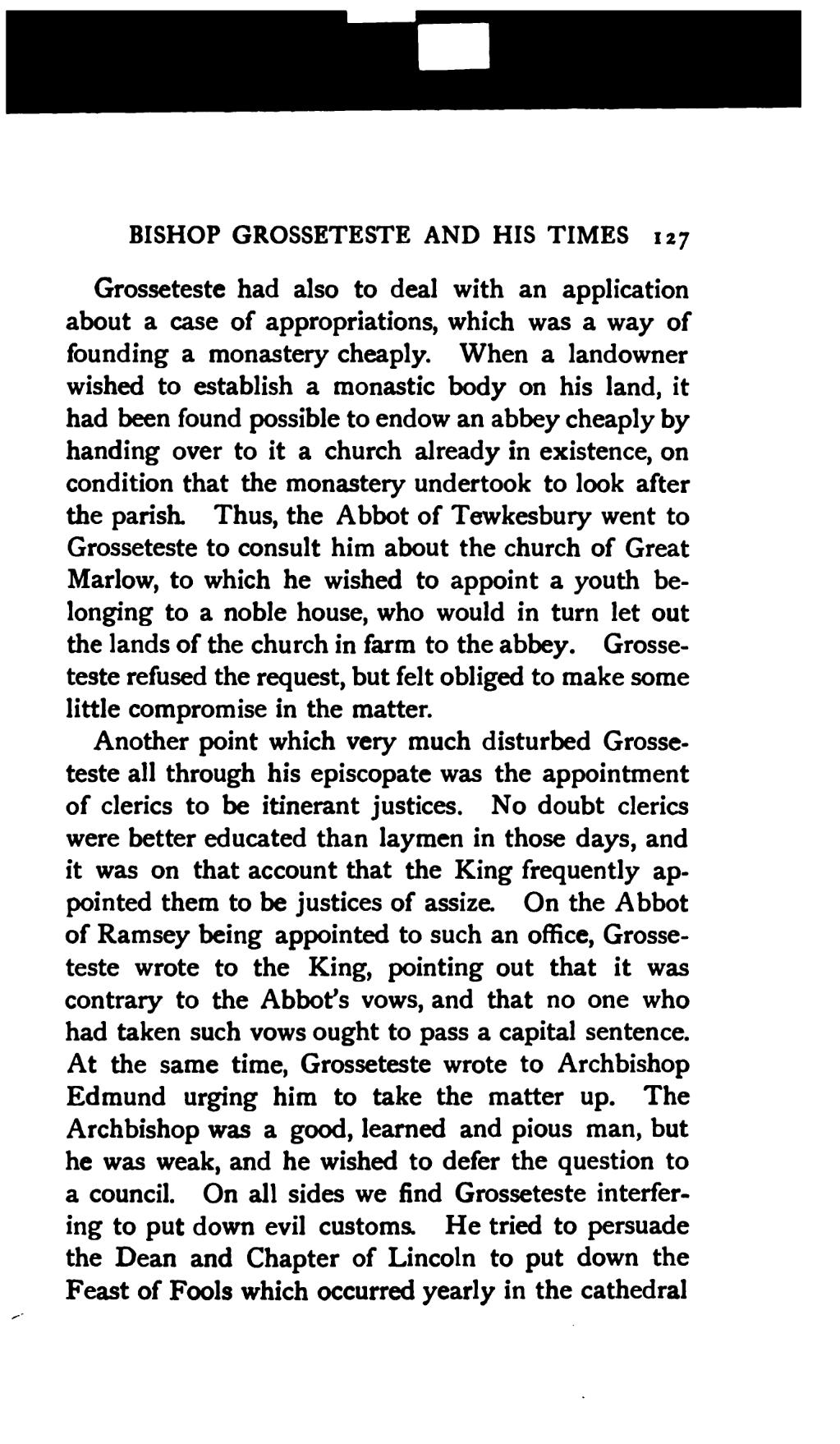Grosseteste had also to deal with an application about a case of appropriations, which was a way of founding a monastery cheaply. When a landowner wished to establish a monastic body on his land, it had been found possible to endow an abbey cheaply by handing over to it a church already in existence, on condition that the monastery undertook to look after the parish. Thus, the Abbot of Tewkesbury went to Grosseteste to consult him about the church of Great Marlow, to which he wished to appoint a youth belonging to a noble house, who would in turn let out the lands of the church in farm to the abbey. Grosseteste refused the request, but felt obliged to make some little compromise in the matter.
Another point which very much disturbed Grosseteste all through his episcopate was the appointment of clerics to be itinerant justices. No doubt clerics were better educated than laymen in those days, and it was on that account that the King frequently appointed them to be justices of assize. On the Abbot of Ramsey being appointed to such an office, Grosseteste wrote to the King, pointing out that it was contrary to the Abbot's vows, and that no one who had taken such vows ought to pass a capital sentence. At the same time, Grosseteste wrote to Archbishop Edmund urging him to take the matter up. The Archbishop was a good, learned and pious man, but he was weak, and he wished to defer the question to a council. On all sides we find Grosseteste interfering to put down evil customs. He tried to persuade the Dean and Chapter of Lincoln to put down the Feast of Fools which occurred yearly in the cathedral
